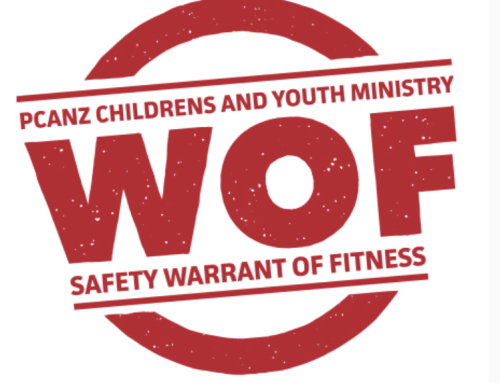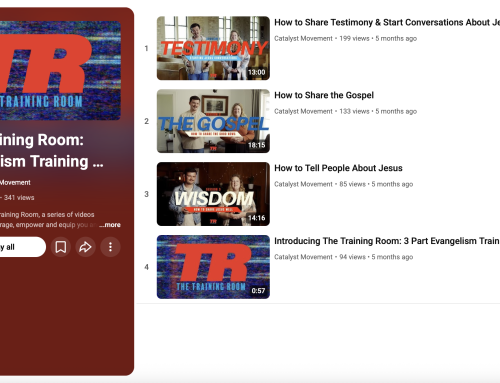This article will be brief – and added to as a summary page.
Why intermediate-aged youth ministry?
- Barna research used to say worldview was essentially shaped by age 14. They now say age 13. While there are exceptions, the ‘presets’ created by this age essentially set what they will consider later.
- It’s very difficult to share belief in a good God with children these days. Social rules suggest this inappropriate – even while other religious ideas are ironically pushed in our schools. By age 11 and 12, these societal dynamics change.
- 11 and 12 year old youth are beginning to think for themselves. Many are INSTINCTIVELY asking the big questions of life, pondering our origins, our purpose, where morality comes from – and what justice therefore is or means, and whether or not there is a greater meaning and hope for our lives.
Common mistake in Intermediate aged youth ministry
I won’t be the only one to see this.
- People run games programmes – while failing to engage intelligent conversation.
- For the contrast – I’ve found that, so long as the DNA of discussions is relaxed, this age are ready to consider the big questions of ‘apologetics, God, religion, Jesus, meaning, purpose and hope. (Children are ready for these topics too, if we teach through story!)
The key is in the approach. It needs to be highly conversational, with storytelling and illustrations of points… not more formal study.
Noting this, this age ARE ready for real philosophical and religious content, if we bring that in appropriate ways. Capturing a vision of the reality of life, they can catch a vision for serving God for the rest of their lives and go on to make a real difference for their peers!
We neglect this age group, or treat them like children, to our detriment.
Some history
Youth groups were typically ages 13 upwards (High School).
YFC in the 1980s and 1990s started ‘Rock Solid Clubs’ – with doors opening on the dot of 6.46pm, and hordes of kids at those doors ready to run in with volume. Partnering with Intermediate Schools, YFC workers served schools and these youth. The highly game-oriented clubs were a bridge for Christian ideas and values. Some then went on to join youth groups – but I would suggest that not enough did.
(When ‘Christian teaching’ is reduced to life-skills it lack authenticity. It’s a really hard lesson to learn – while storytelling skills are your key for doing differently.)
The Rock Solid movement fell over around the end of the 1990s, though with some exceptions. Rock Solid Clubs continue through combined church efforts in parts of Northland for example.
Some new heroes
Ben MacGregor of the Vineyard churches has given focus to this age group – with a decade of ministry behind him.
With others, a new generation of leaders have been facilitating a new era of youth camps specifically for ages 11 and 12. Amazing things have been happening. it is bringing renewed esteem to this area of work.
That renewed esteem is needed. We pray it continues – and a new movement of enthusiasm, faith, vision and action begins for this age group – through churches nationally.
A resource – to illustrate the ease of converastion leading
If you are stuck for a lesson with this age group, play one of the ‘history’ stories from ‘Torchlighters’ – free on YouTube here.
- These are the stories of great Christians from history
- They are INSPIRATIONAL
- They are MOVING
- They show people embracing great cost – which is inspiring.
These are the kinds of easy ‘teaching mechanisms’ that work for this age.
Other topic areas
- Life lessons from heroes of the Bible – with the YOUTH bringing the main points.
- Key apologetics questions – discussing evidence for God, why trust the Bible, what about evolution, do miracles happen etc… (https://WhyChristiansBelieve.nz has videos and booklets that can resource you with the ILLUSTRATIONS you communicate – followed by a question.)
The skill set
Just in case some training is helpful.
- Storytelling. This is how you convey information interestingly and quickly – with their full attention. Then ask a question. (The best resource I have currently on this is a short book/audio book, free online. Scroll down to find ‘The Art of Storytelling’ at https://alltogether.co.nz/rationalfaith
- Discussion leadership skills.
- I refer you to part of a training at this link here.
- Start watching at 19.45mins.
- This video is ‘discussion leading skills’ made simple
- It is only about 3mins of video to get the point.
- (Optionally listen to the exercise time and people’s examples of questions)
- Launching questions – wide open, don’t need to be spiritual, a platform for fun stories.
- E.g. Who’s your favourite teacher (or worst ever)? (Everyone could have a story – get everyone talking)
- Guiding questions – the content, made possible because an ENVIRONMENT in which all might talk is now fostered.
- E.g. What do you think are keys to being a good teacher?
- Application questions – specific application.
- E.g. What will you do differently next time you teach a group of students?
- Launching questions – wide open, don’t need to be spiritual, a platform for fun stories.
These are literally the skills with which a person can be highly effective with this age group – but only if the CONTENT you are delivering is about faith, life, reality and reason. Don’t patronise these young people. Don’t think they aren’t smart or interested in proper topics. And master these skills! :-)
We pray a new day in Intermediate Aged youth ministry comes about in our nation!




